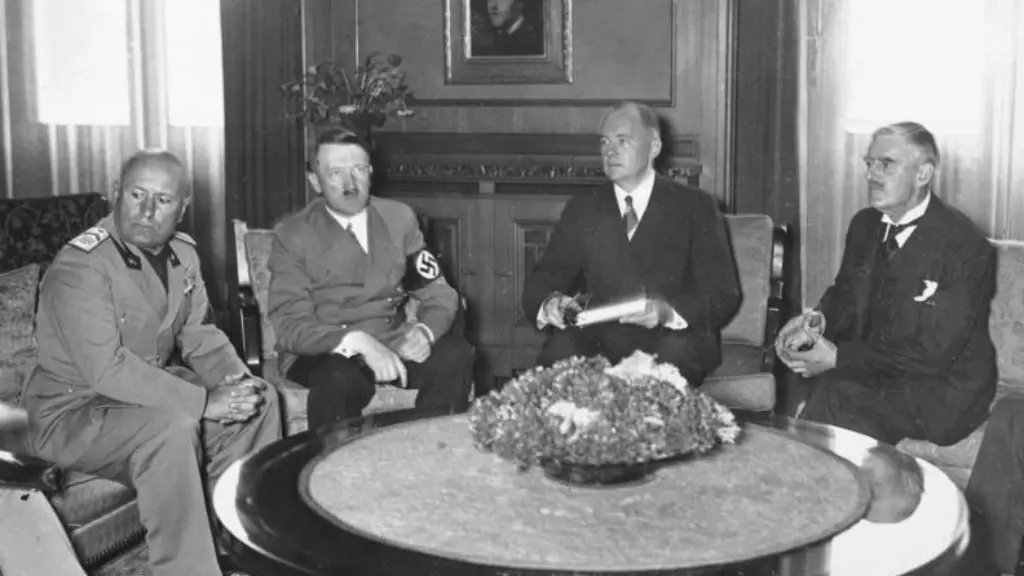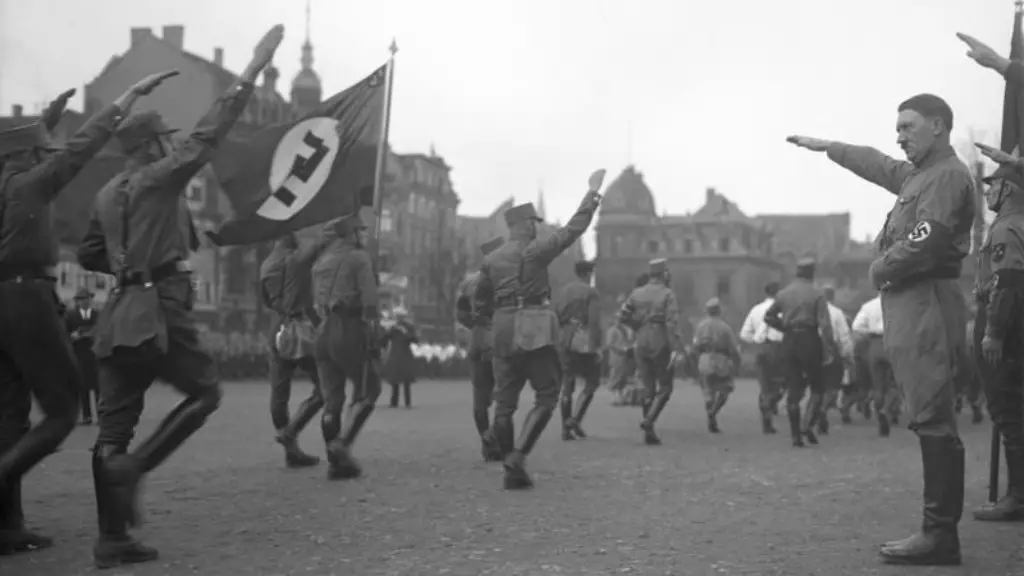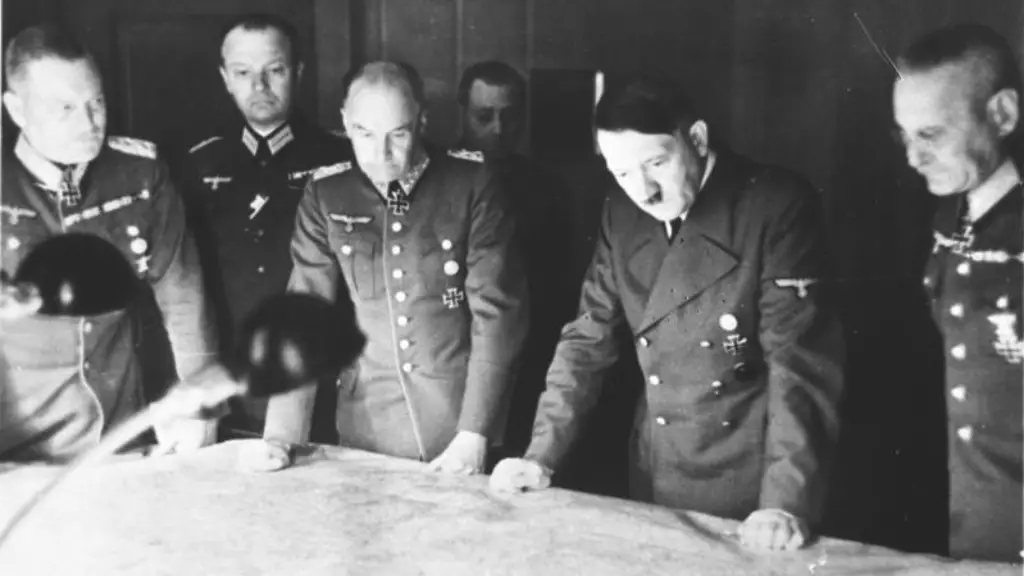Adolf Hitler is one of the most notorious figures of the 20th century, infamous for his role in the systematic extermination of millions of people during World War II. But why did Hitler choose this route? Much of what is known about Hitler’s motivations comes from his own writings and recorded speeches, which he fervently believed would be the standard by which history judged him. Theories surrounding Hitler’s actions are often varied, yet they consistently point to factors related to his warped sense of nationalism and entrenched racism.
Hitler’s views were heavily influenced by his understanding of racial superiority and xenophobia. As a member of the National Socialist German Workers’ Party (NSDAP) under the umbrella of Nazism, Hitler sought absolute control and despised the liberal state structure that had emerged in Weimar Germany after World War I. His disdain for Jews was deeply rooted in the complex and often misunderstood ideologies of eugenics, which were frequently linked to notions of purity and racial superiorty. For Hitler and other Nazi leaders, a “master race” needed to be established, resulting in the genocide of millions of Jews, Roma, homosexuals, and other non- Aryans.
On a personal level, Hitler’s revenge against those who had opposed him – such as communists and socialists – was a major factor in his decision to partake in violence against those deemed morally or racially inferior. Political scientists, such as Robert Gellately and Ian Kershaw, have explored the role of revenge in Hitler’s policies, suggesting that this was a form of psychological compensation for his pride and powerlessness. Consequently, he became heavily embedded into a dictatorship and subsequent subjugation of people.
A widely accepted belief around the reasons why Hitler committed these crimes is that they were intended to acheive three aims: firstly, to solidify the Nazi’s hold on Germany; secondly, to gain control over parts of Europe and other lands and to exterminate anyone who posed a threat to that control, regardless of race or ethnicity; and finally, to demonstrate the superiority of the so-called Aryan race over other Europeans.
Those who subscribe to Holocaust theories point out that many of Hitler’s actions were driven by a desire to erase any trace of minority groups in Europe and create a unified society under his rule. His actions were also rooted in his desire to exact revenge on anyone he felt had wronged him, whether real or imagined. Many historians view these actions as part of an authoritarian and supremacist agenda that Hitler sought to achieve through massive oppression and systematic genocide.
From this perspective, the slaughter of millions of people was motivated by a perverse attempt to gain power, a decision that still haunts the world to this day. Hitler’s totalitarian state and its ambitions for world domination have deeply affected international politics, and terrified the world for the past century.
Nazism and Authoritarianism
The Nazi movement is closely linked to the principles of authoritarianism, which is typically defined as a system of governance in which an individual or a small group exercises absolute power over its citizens. Under such rule, individual integrity and personal freedom are completely disregarded. This is what Hitler was actively trying to impose on Europe – a monolithic society in which personal decisions, relationships and individual agency were completely disregarded.
Hitler’s efforts to create a “master race” that would dominate the continent and beyond were based on the ideals of Hitler’s Führerprinzip, or leadership principle, which consists of two major core principles: autocratic leadership and absolute obedience. It is noteworthy that Hitler rarely made decisions based on morality, but rather based on emotion, with little to no regard for its consequences. This was a crucial factor in his ability to launch a mass genocide of millions of people.
The Nazi belief of superiority was also reinforced by Hitler’s use of propaganda which allowed him to gain control over the minds of the German people, and to use their human feelings as an instrument of indoctrination. Through propaganda, Hitler was able make the ignorant majority sympathize and in some measure, justify his atrocities. Propaganda was also a tool for preventing those who disagreed with him from speaking out, by instilling feelings of fear, shame, and guilt.
In addition, Hitler was a skilled public speaker, able to reach diverse crowds and to inspire a sense of unified purpose. This enabled him to spread ideas of racial superiority against Jews and other minority groups, and to gain a powerful following among many Germans.
Hitler’s Ideology and Psychology
Hitler was a master manipulator and propagandist, who employed numerous tactics to achieve his goals. He was a strong believer in the idea of ideology, which is a set of ideas or beliefs that guide individual action, and which seeks to legitimize a certain social status. For Hitler, this meant exploiting certain existing anti-Semitic prejudices in Germany to legitimize his own power.
Hitler placed himself at the center of his ideology, presenting himself as the savior of the German people. He believed in the superiority of the Aryan race, and envisioned a future in which Germany would be the great nation which he thought it deserved to be. By achieving this goal, Hitler felt he would be remembered as the creator of a new and unified world.
On a psychological level, Hitler was known to be an intensely lonely person, a trait which is believed to have driven his narrative of martyrdom and vengeful nationalism. He was often seen as an uncharismatic, awkward leader, and his feelings of inferiority and insecurity further propelled him to seek power and control over another human beings.
Historians have also theorized that Hitler viewed violence against certain minority groups as a way to escape his own personal failures. He deliberately encouraged murderous acts as a tangible symbol of his superiority, repressing those he felt threatened by in order to mask his own intellectual and psychological inadequacy.
Legacy
The legacy of Hitler’s actions lives on even today. He is one of history’s most notorious war criminals, as well as a symbol of racial hatred, violence, and prejudice. He left behind a legacy of brutal violence and mass genocide which had long-term impacts on the inter-war period, several countries, and their inhabitants. The memory of his activities has continued to haunt the world for decades, yet his warped ideologies of superiority and exclusion are still present in today’s world.
Although Hitler’s attempt to create a totalitarian state ultimately failed, his ideologies and actions serves as a reminder of how dangerous unchecked power and racial prejudice can be. It serves as an important lesson that if left unchecked, they can have lasting and devastating consequences, not just in Germany, but globally. Though Adolf Hitler’s principle regimes are largely extinct today, his ideas live on and continue to have a significant impact on politics and society.
Nazism and the Holocaust
Nazism, as perpetuated by Adolf Hitler, was a movement that went beyond its own party and even went beyond human experience. It’s estimated that over 6 million people were murdered under Nazi rule in the hands of Hitler and his cronies. The Holocaust was arguably the darkest moment in modern history, with the Nazis’ goal being to completely annihilate the Jewish people by classifying them as vermin, denying them access to basic human rights, and sending them to concentration camps in what’s referred to now as the Shoah, or Holocaust.
The brutality of the Holocaust is still felt today. Victims of Nazi concentration camps, Hitler’s surveillance systems, and the expulsions of people from their homes, still haunt those who experienced atrocoties. The physical and emotional effects of the Holocaust are certain to outlive the last survivors and force humanity to confront the legacy of this dark period.
The Holocaust has been recognized as not just a tragedy in its own right, but as a result of Hitler’s ambitions for a master race and a totalitarian state. While the Holocaust does not have a single, straightforward answer, understanding Hitler’s motivations and his ideology is key to comprehending what happened during the Nazi regime.
Conclusion
The reasons behind Hitler’s decisions and the persecution of minority groups remain rooted in his deeply entrenched racism, bigotry and supremacist ideologies. By creating a “master race” to dominate the continent and beyond, Hitler threatened the very fabric of a human life that is still felt today. He left behind a disturbing legacy of hate and genocide that has deeply affected modern politics and terrorized the world for the past century. His actions serve as a reminder to all of us of the dangers of unchecked power and bigotry.





